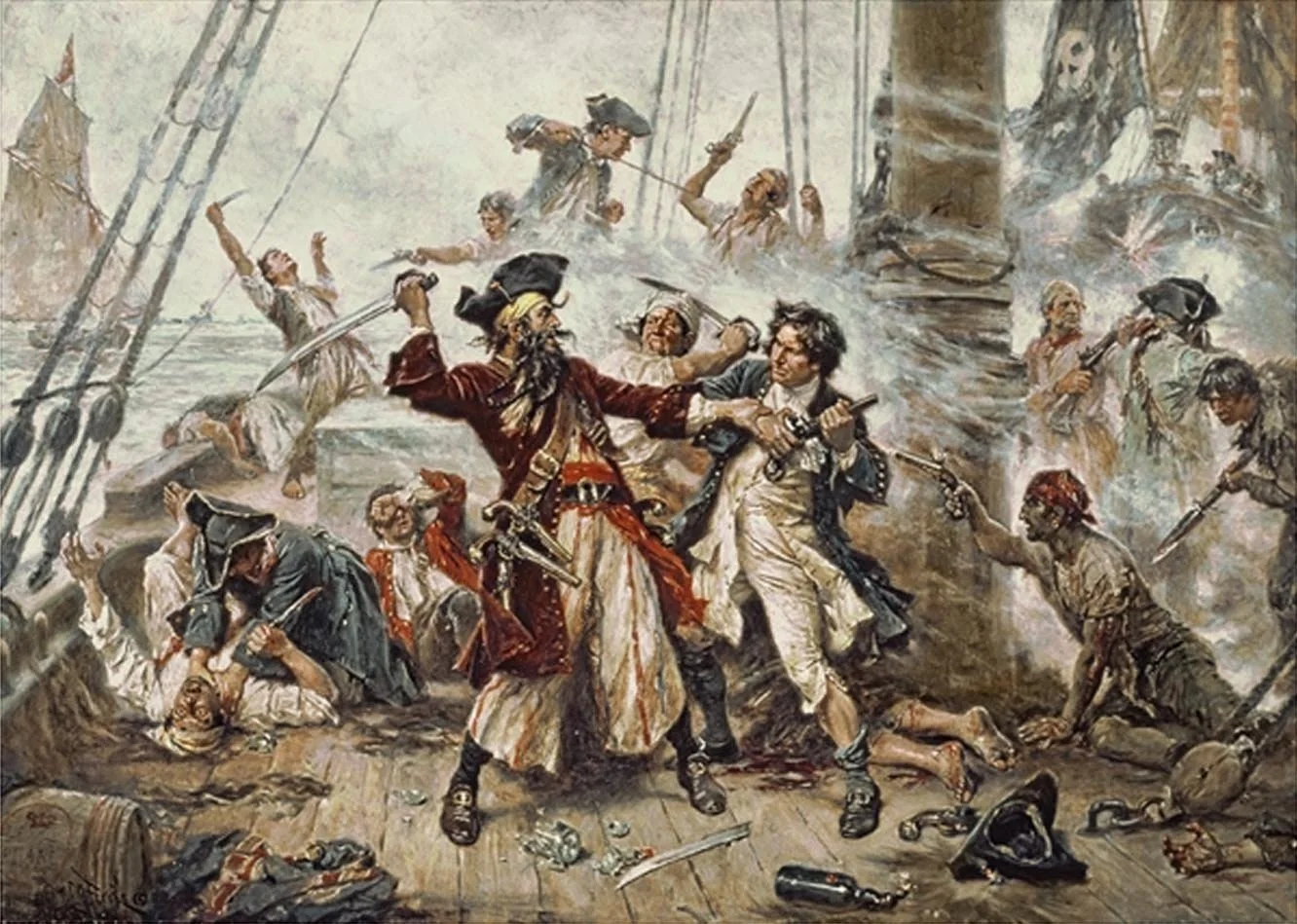By the middle of the seventeenth century, the colonial ambitions of the Dutch, French, and English, had turned the Caribbean into a veritable hodge podge, with each group controlling various islands and colonies whose economies were based on producing sugar by treating imported slaves from Africa as grossly inhumanely as possible. As you can probably imagine, this didn’t sit well with Spain, who were a-okay of treating non-Europeans like shit, but definitely didn’t want anyone stepping on their turf, but being perpetually broke during this period, there really wasn’t anything they could do about it. Now for those who have been paying attention, for basically the entirety of the seventeenth century at least two of these powers were at war with each other at any given time, and it was not uncommon for said wars to spill out of the confines of Europe to the New World. However, aside from the Spanish, who even when broke had a shit ton of silver coming in, none of the rivals could afford to maintain a professional navy so far from home.
To make up for this naval deficiency, all sides came to rely heavily on privateers, which is a different way of saying mercenaries. Privateers were just random asshats who owned ships who were more than willing to attack other ships. Basically, the way it worked was a country would give privateers permission to attack the ships of other nations, the spoils of which would be kept by the privateers. To boil it down further, it was regulated piracy, which quickly became a cottage industry, with the French controlled Tortuga and English controlled Jamaica being specifically notorious privateer havens, their local governors more than happy to turn a blind eye for the good of king and country, not to mention a sweet share of the booty. However, as often happens, things began to get out of hand. Thanks to the almost constant state of war, a growing ship building industry in the New World, and growing trade through the region, the number of privateers began to grow exponentially. At first this was bad luck for the Spanish, given it resulted in many of their towns and cities across the Spanish Main being sacked repeatedly, but once attacking Spanish towns became a bit like squeezing blood from a stone, the privateers began to increasingly attack anybody and everybody regardless of what peace treaties were signed back in Europe. With the privateers making money and the local governors making money, it was no longer a matter of politics, but rather a business, and a booming one to boot.
Now strangely enough, for whatever reason, the people who worked as privateers began to develop their own unique culture. Perhaps it was the quasi-legality of the whole thing, or perhaps it was the fact that the seemingly endless wars led to the development of a permanent population of privateers, or perhaps the fact that most privateers came from the shittier end of the social ladder, but for whatever reason as time went on, they formed an increasingly egalitarian society. Over time, privateering vessels became increasingly democratic, with crew members voting for their leaders, codes of conduct, punishments, and who they should work for. As well, things like racial divisions were largely unheard of, with people treated based upon their capabilities rather than their ancestry. All of this at a time when European culture was still dominated by strict aristocratic hierarchies and deeply set prejudices.
The golden age of privateers in the Caribbean came to an end with the end of Queen Anne’s War in 1713. Over the course of the war both Britain and France had built up large professional navies, the result of which being they didn’t need privateers anymore, which put thousands of privateers out of work. Not really being down with this turn of events, many of the formerly quasi-legal privateers decided to just go full pirate, attacking and raiding any ship they crossed paths with, regardless of who owned it, and even setting up a Republic of Pirates in the Bahamas. This was decidedly not a great turn of events for the European powers who depended on the Caribbean for sugar and other such cash crops, who decided that the best way to deal with it was to stamp out the pirates via force. The British royal navy was dispatched to the Caribbean to sink pirate vessels and hang their crews. The Republic of Pirates came under British control in 1718, its inhabitants hanged, scattered, or given a pardon for surrendering. By 1725, the majority of pirate vessels were sunk or fled to other less patrolled waters, such as the Indian Ocean. Though piracy would continue to be an issue in the region into the early nineteenth century, it was never as prominent as it once had been.

